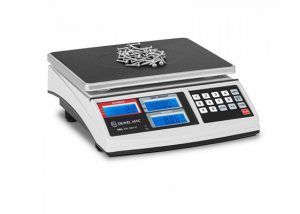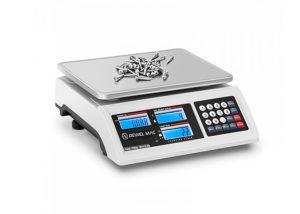Parts Counting Scale China Manufacturer & Wholesale Supplier
Dwinley is a leading manufacturer and supplier of parts counting scales. With years of experience in B2B market, we provide reliable products to meet the demands of factories, warehouses, and logistics providers. Our counting scales combine durability, accuracy, and efficiency, enabling businesses to streamline inventory management and maintain precise stock control. Bulk orders and custom options are available to support scaling production and industrial needs.
- High Accuracy – Delivers precise piece counting even for lightweight or tiny parts.
- Fast Response Time – Provides instant readings to speed up workflow.
- Multiple Unit Conversions – Switch between grams, kilograms easily.
- User-Friendly Interface – Simple keypad and clear digital display for easy operation.
- Durable Construction – Robust ABS housing and stainless-steel platform to withstand industrial use.
- Internal Rechargeable Battery – Enables portable use without constant power supply.
- Connectivity Options – RS232, USB, or Bluetooth for data transfer to PCs or printers.
- Compact Design – Saves space on workbenches and production floors.
- Backlit Display – Improves visibility in low-light environments.
Dwinley Digital Parts Counting Scale Series
Benefits of Dwinley Parts Counting Scale
Partner With Dwinley - Best Counting Scale For Small Parts
Designed for small parts, our scales offer unmatched accuracy, durable build, and user-friendly features to simplify your workflow. Whether you handle screws, bolts, or electronic components, Dwinley provides reliable solutions to keep your counting precise and accure. Don’t risk errors or wasted time—partner with Dwinley today and optimize your small parts management.


